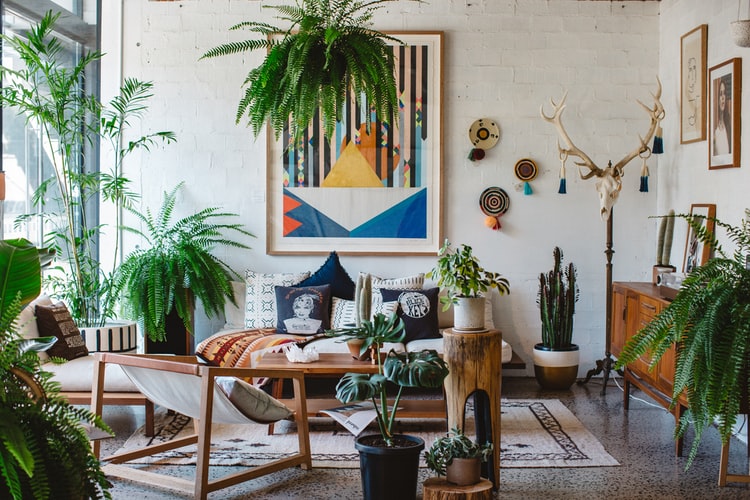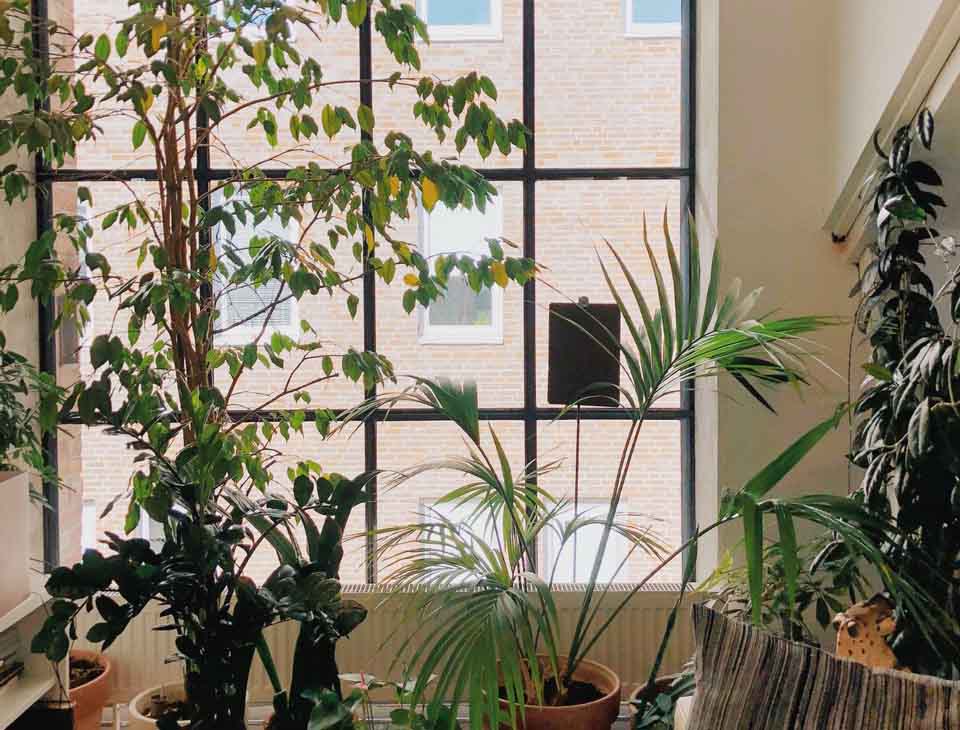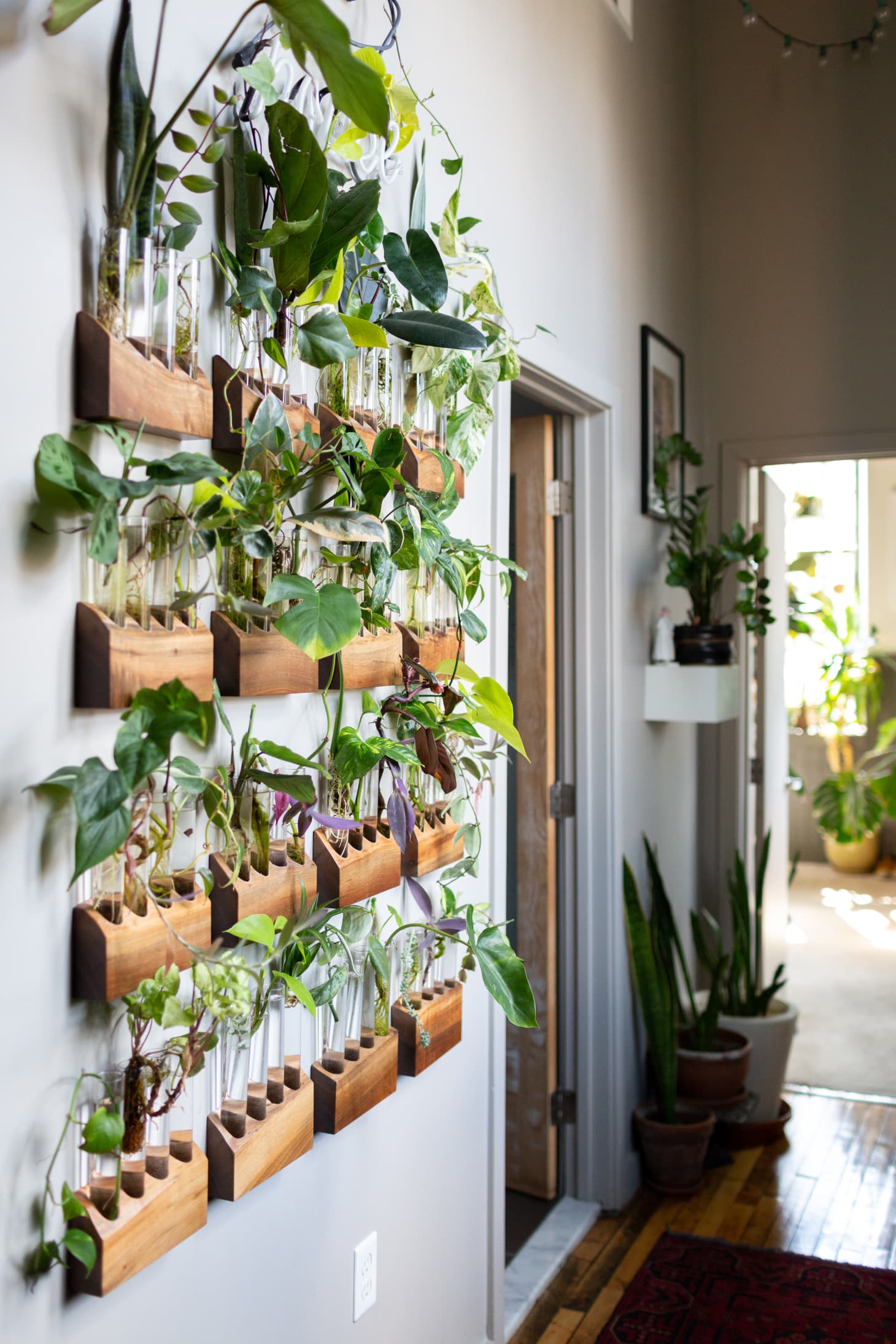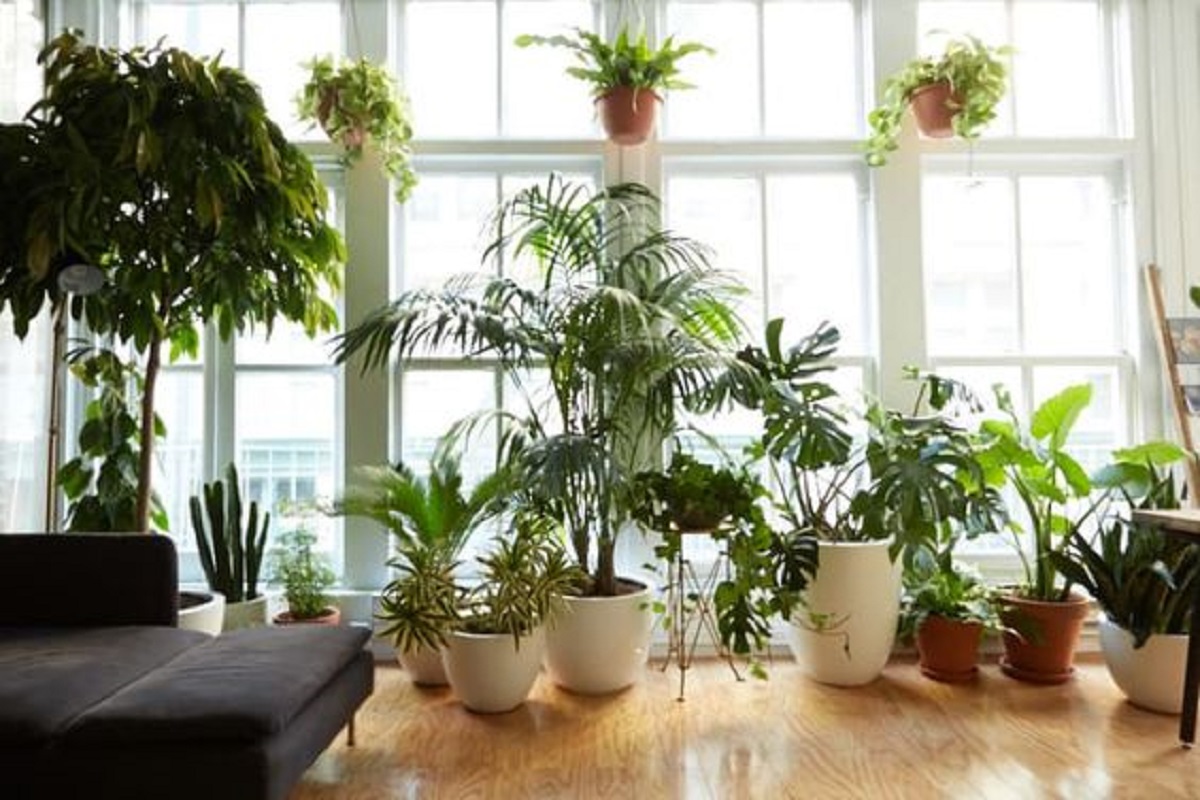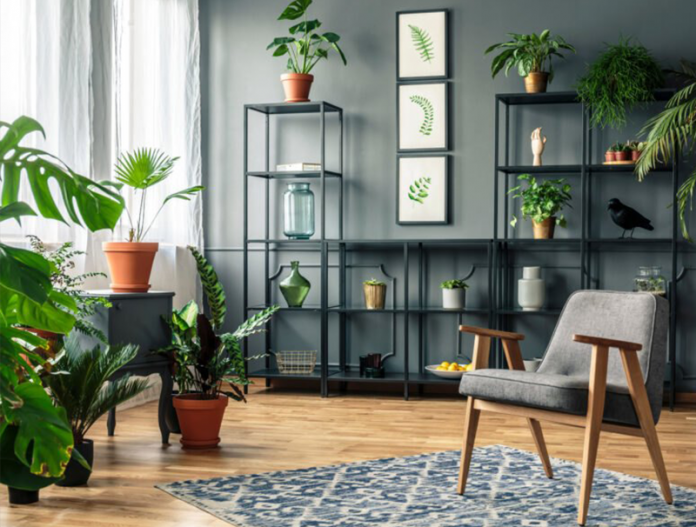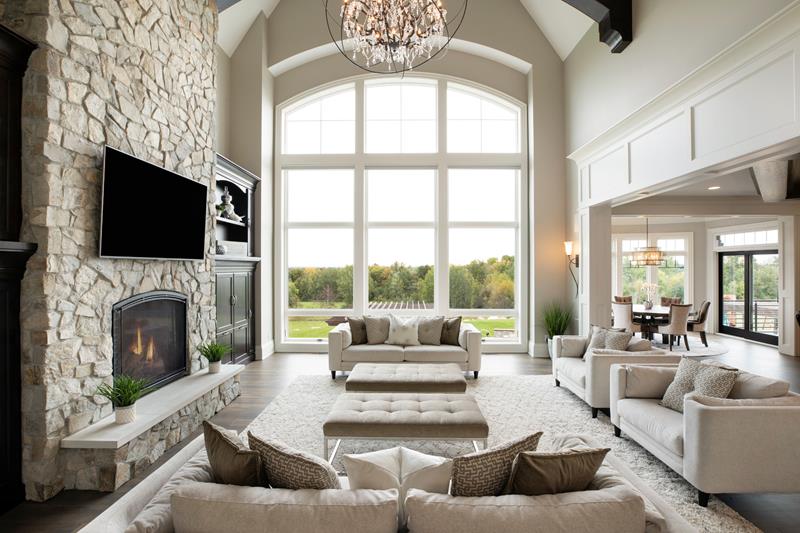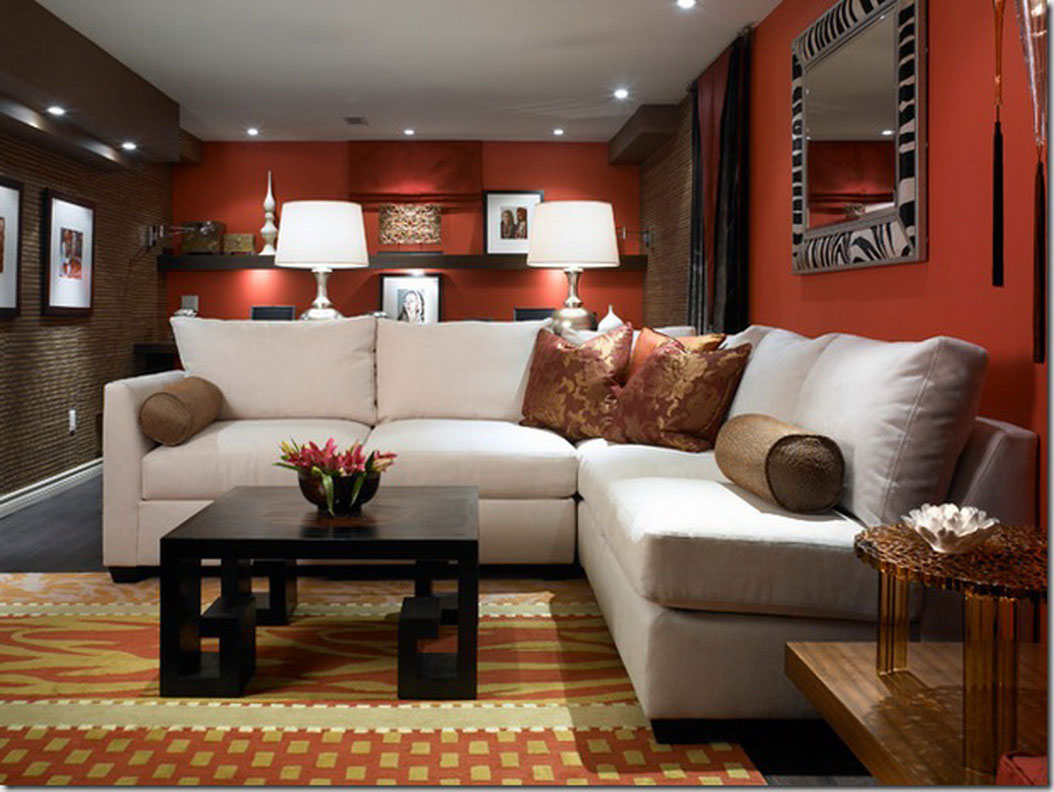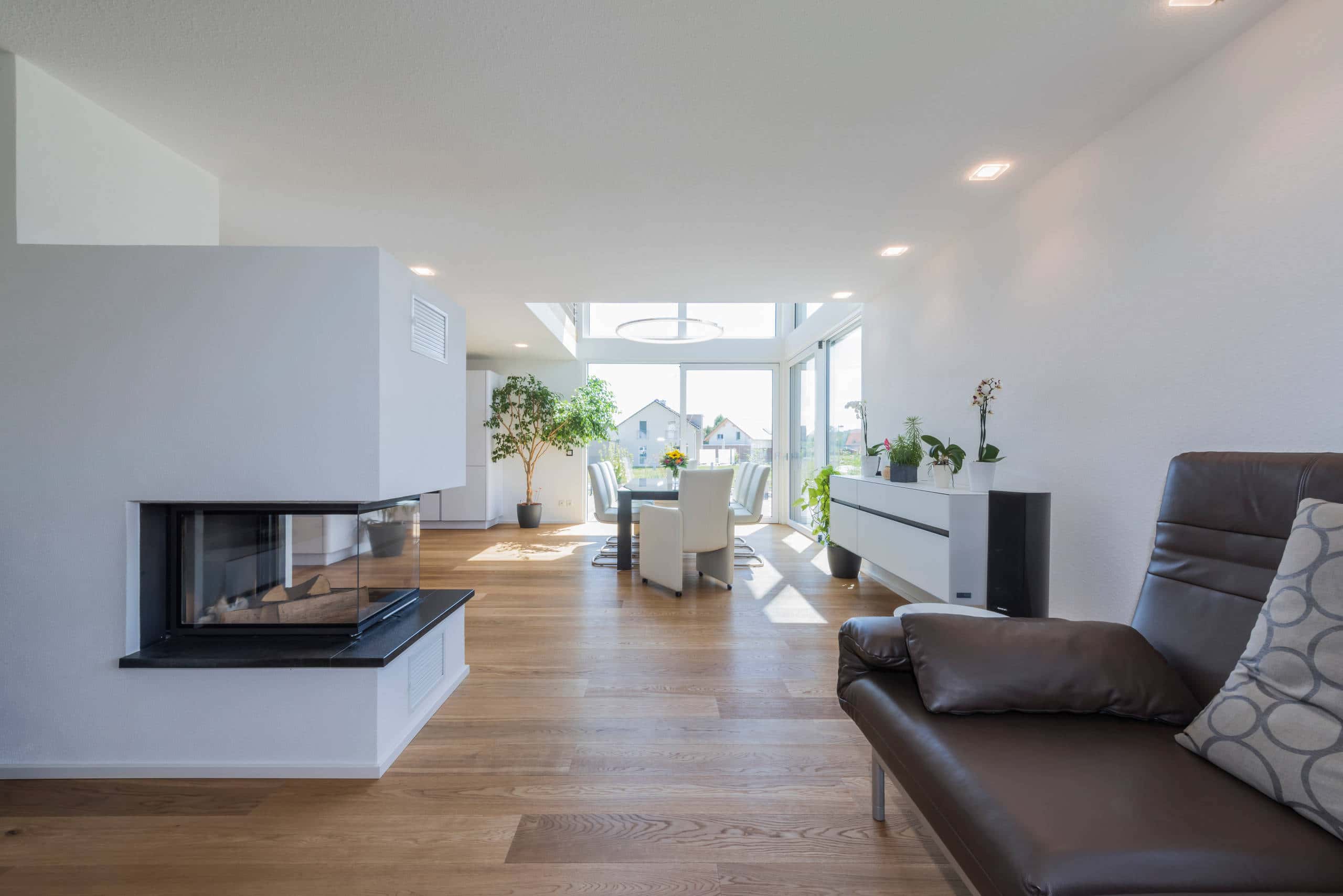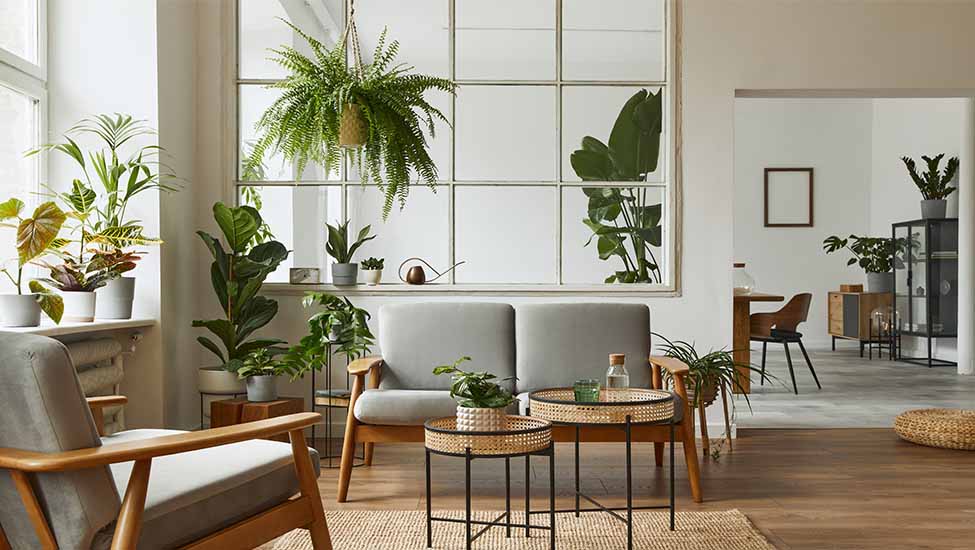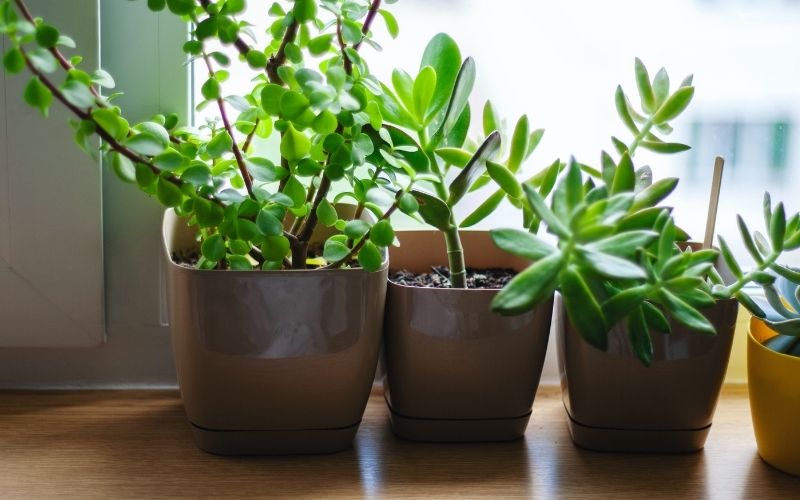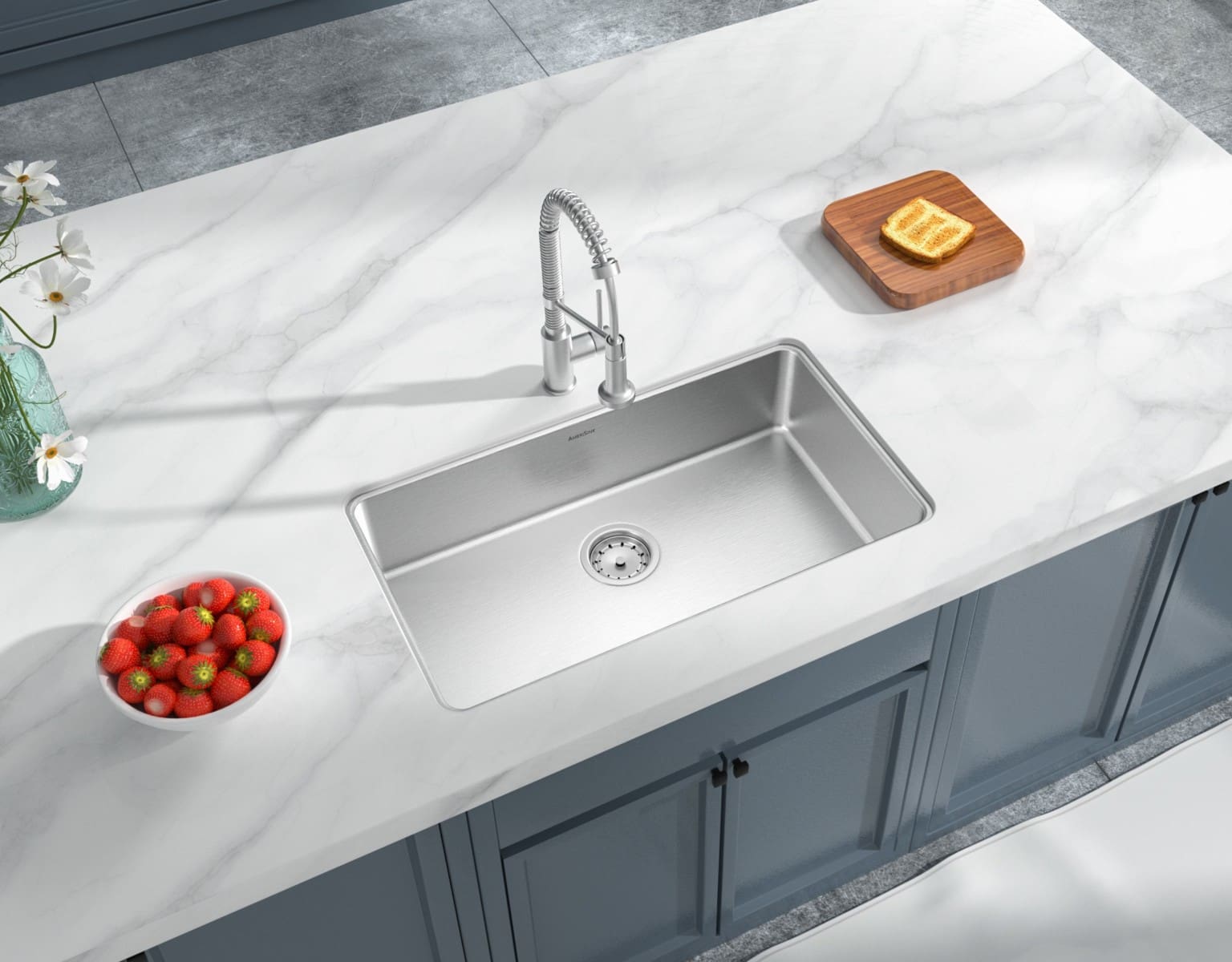Hanging Plants in Living Rooms: A Guide to Creating a Lush Space
Adding hanging plants to your living room is an easy and affordable way to bring life and freshness to your space. Not only do they add a touch of greenery, but they also have numerous benefits for your overall well-being. If you're looking to transform your living room into a lush and vibrant space, here is a guide to help you incorporate hanging plants into your decor.
10 Beautiful Ways to Decorate Your Living Room with Hanging Plants
There are endless possibilities when it comes to decorating your living room with hanging plants. From simple and minimalist to bold and eye-catching, here are ten beautiful ways to incorporate hanging plants into your living room decor.
1. Create a Hanging Plant Gallery Wall
Transform a blank wall into a stunning display of hanging plants. Mix and match different types of plants and pots to create a unique and personalized gallery wall. This is a great way to add a touch of nature to your living room while also showcasing your creativity.
2. Hang Plants from the Ceiling
Make a statement by hanging plants from the ceiling. This is a great option for those who have limited floor space but still want to add some greenery to their living room. You can use macrame plant hangers or even DIY your own using ropes or chains.
3. Add a Hanging Plant Shelf
If you have a window in your living room, consider adding a hanging plant shelf underneath it. This will not only bring in more natural light for your plants, but it will also add a unique and stylish touch to your living room.
4. Hang Plants from a Curtain Rod
A simple and affordable way to add hanging plants to your living room is by using a curtain rod. Simply hang the plants from the rod using S-hooks or macrame hangers. This is a great option for those who are renting and can't make any permanent changes to their space.
5. Create a Hanging Plant Chandelier
Add a touch of elegance to your living room by creating a hanging plant chandelier. Use a combination of small plants and string lights to create a stunning centerpiece for your living room. This will not only add visual interest, but it will also create a warm and cozy ambiance.
6. Mix and Match Different Plant Types
Don't be afraid to mix and match different types of plants when decorating with hanging plants. This will add texture and dimension to your living room and create a more natural and organic feel. You can also play with different heights and sizes to create a visually appealing display.
7. Hang Plants in a Corner
If you have a corner in your living room that needs some sprucing up, consider adding a hanging plant. This will not only add some greenery to the space, but it will also fill up an empty corner and add some visual interest. You can even hang multiple plants at different heights for a more dramatic effect.
8. Use Hanging Plants as a Room Divider
If you have an open-concept living room, you can use hanging plants to create a natural room divider. This is a great way to define different areas in your living room while also adding some privacy and greenery. You can use tall plants to create a more substantial divider or opt for smaller plants for a more subtle effect.
9. Hang Plants in Front of a Mirror
Adding hanging plants in front of a mirror is a clever way to create an illusion of a larger space. The mirror will reflect the plants, making the room appear bigger and more spacious. You can also use this trick to add some greenery to a smaller living room without taking up any floor space.
10. Use Hanging Plants as a Focal Point
Make a bold statement by using hanging plants as a focal point in your living room. Choose one large and eye-catching plant and hang it in a prominent spot, such as above your sofa or fireplace. This will not only add a wow-factor to your living room, but it will also draw the eye upwards, making the room feel taller.
How to Incorporate Hanging Plants into Your Living Room Decor
Now that you have some ideas on how to decorate your living room with hanging plants, here are some tips on how to incorporate them into your decor seamlessly.
1. Consider Your Living Room Style
Before choosing which hanging plants to add to your living room, consider the overall style and aesthetic of the space. For a bohemian or eclectic living room, opt for trailing and cascading plants, while for a more modern and minimalist space, choose plants with clean and simple lines.
2. Choose the Right Size and Placement
The size and placement of your hanging plants will depend on the layout and size of your living room. For smaller living rooms, opt for smaller plants that won't overwhelm the space. For larger living rooms, you can go for larger and more dramatic plants. Also, consider the placement of your plants in terms of lighting and accessibility for watering and maintenance.
3. Coordinate with Your Color Scheme
Coordinate your hanging plants with your living room color scheme to create a cohesive and harmonious look. You can choose plants with foliage that complements your decor colors or opt for pots that match your accent colors.
4. Don't Forget About Care and Maintenance
Hanging plants require specific care and maintenance, so make sure to choose plants that are suitable for the amount of natural light and humidity in your living room. Also, consider how often you will need to water and fertilize the plants and make sure it fits into your lifestyle.
The Benefits of Having Hanging Plants in Your Living Room
Aside from their aesthetic appeal, hanging plants also have numerous benefits for your living room and overall well-being.
1. Purifies the Air
Hanging plants are natural air purifiers, removing harmful toxins and pollutants from the air. This is especially beneficial for those living in urban areas with high levels of air pollution.
2. Reduces Stress and Improves Mood
Being surrounded by nature has been proven to reduce stress and anxiety and improve mood. Adding hanging plants to your living room can create a calming and soothing environment, perfect for unwinding after a long day.
3. Adds Humidity to the Room
Plants release moisture into the air, increasing the humidity in a room. This can be beneficial for those living in dry climates or during the winter months when the air tends to be drier.
4. Boosts Creativity and Productivity
Having plants in your living room can help boost creativity and productivity. Studies have shown that having plants in a workspace can increase productivity by up to 15%.
5. Enhances Visual Appeal
Last but not least, hanging plants add visual appeal to your living room. They can soften harsh lines and add texture and color to the space, creating a more inviting and welcoming atmosphere.
Creative Ways to Hang Plants in Your Living Room
Now that you know the benefits of having hanging plants in your living room, here are some creative ways to hang them.
1. Use a Ladder
A ladder can be a unique and unexpected way to hang plants in your living room. Simply place the ladder against a wall and hang your plants from the rungs using macrame hangers or S-hooks. This is a great option for those who have limited wall space.
2. Hang Plants from a Bookshelf
If you have a bookshelf in your living room, you can use it to hang plants from the top shelves. This will create a vertical display and add some greenery to your bookshelf without taking up any surface space.
3. Use a Plant Stand
Another creative way to hang plants in your living room is by using a plant stand. This can be a simple and affordable option for those who don't want to make any permanent changes to their walls or ceiling. You can even use multiple plant stands to create a tiered effect.
4. Hang Plants from a Curtain Rod
We mentioned using a curtain rod to hang plants earlier, but you can also use it in a different way. Instead of hanging plants directly from the rod, you can use it to hang a shelf or basket from which you can then hang your plants.
5. Create a Hanging Plant "Chandelier"
Similar to the hanging plant chandelier we mentioned earlier, you can use a wire basket or a metal frame to create a "chandelier" to hang your plants from. This is a great option for those who want to add a unique and eye-catching piece to their living room decor.
15 Stunning Living Rooms with Hanging Plants for Inspiration
If you're still not convinced about adding hanging plants to your living room, here are fifteen stunning living rooms with hanging plants for inspiration.
"Featured keywords: living room, hanging plants, lush, decor, transformation, benefits, creativity, maintenance, inspiration"
How to Choose the Right Hanging Plants for Your Living Room
When choosing hanging plants for your living room, there are a few things to consider to ensure they thrive in their new environment.
1. Light Requirements
Some plants require more natural light than others, so make sure to choose plants that are suitable for the amount of natural light your living room gets. If you have a lot of natural light, opt for plants that require bright, indirect light. For rooms with less natural light, choose plants that can thrive in low-light conditions.
2. Size and Growth Habit
Consider the size and growth habit of the plants you choose. For smaller living rooms, opt for smaller plants or those that are slow-growing. For larger living rooms, you can go for larger and more dramatic plants that can fill up the space.
3. Maintenance Requirements
Some plants require more care and maintenance than others. If you have a busy lifestyle, opt for low-maintenance plants that don't require frequent watering or fertilizing. If you don't mind putting in a little extra effort, you can choose more high-maintenance plants.
4. Aesthetic and Style
Last but not least, consider the overall aesthetic and style of your living room when choosing hanging plants. You want the plants to complement your decor and not clash with it. You can also choose plants that add a pop of color or texture to your living room.
The Ultimate Guide to Caring for Hanging Plants in Your Living Room
Now that you have chosen the perfect hanging plants for your living room, here is a guide to help you care for them and ensure they thrive in their new home.
1. Watering
The key to any plant's survival is proper watering. Make sure to water your hanging plants regularly, but be careful not to overwater them. The frequency of watering will depend on the type of plant and the season, so make sure to do your research and adjust accordingly.
2. Fertilizing
In addition to watering, plants also need nutrients to thrive. You can use a liquid fertilizer once a month during the growing season to give your plants the boost they need.
3. Pruning and Trimming
Regular pruning and trimming are essential for keeping your hanging plants healthy and looking their best. This will help stimulate new growth and prevent your plants from becoming too leggy and sparse.
4. Checking for Pests and Diseases
Keep an eye out for any pests or diseases that may affect your hanging plants. If you notice any signs of infestation or disease, take action immediately to prevent it from spreading to other plants.
5. Rotating and Repositioning
To ensure all parts of your hanging plants receive enough light, it's important to rotate and reposition them every so often. This will also help prevent your plants from becoming lopsided or uneven.
20 Gorgeous Living Rooms with Hanging Plants to Elevate Your Space
Still need some more inspiration? Here are twenty more gorgeous living rooms with hanging plants to help you elevate your space.
"Featured keywords: living room, hanging plants, lush, decor, transformation, benefits, creativity, maintenance, inspiration"
Incorporating hanging plants into your living room decor is a great way to create a lush and inviting space. With these tips and ideas, you can transform your living room into a beautiful and vibrant oasis. So go ahead and add some greenery to your living room, and watch your space come to life.
Adding Freshness and Life to Your Living Room with Hanging Plants
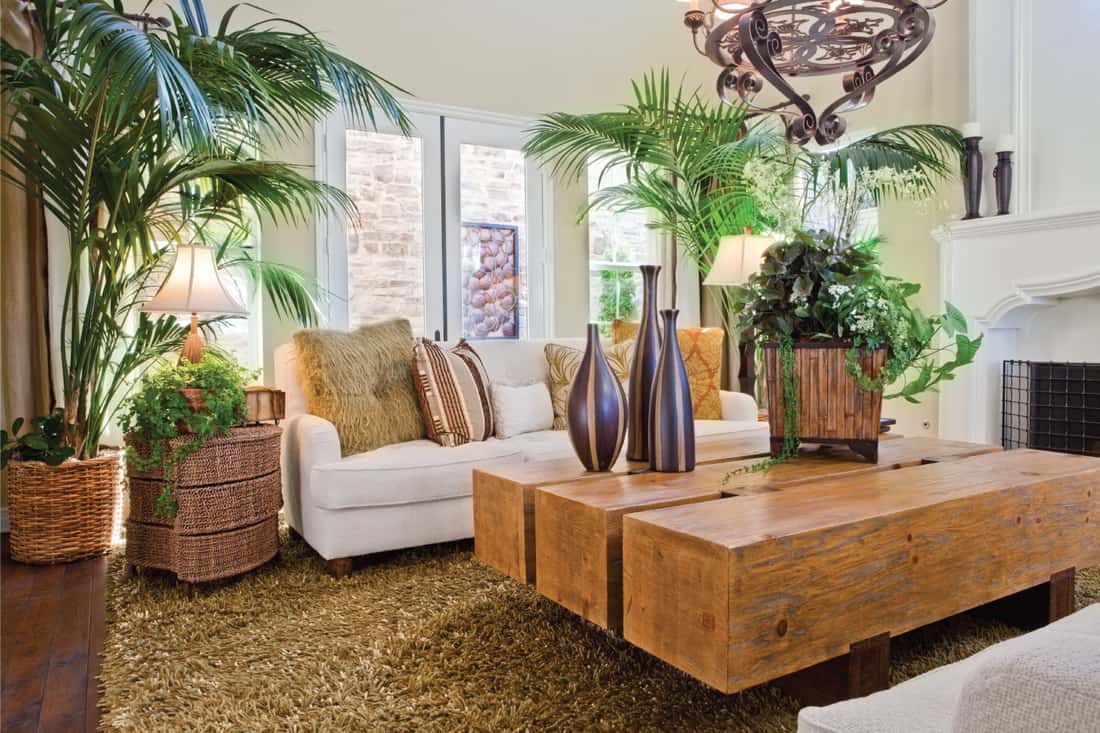
In today's fast-paced world, it's important to create a peaceful and rejuvenating space in our homes. And what better way to do that than by incorporating hanging plants into your living room design? Not only do they add a touch of nature and greenery, but they also have numerous health benefits and can elevate the overall aesthetic of your home.
Benefits of Hanging Plants
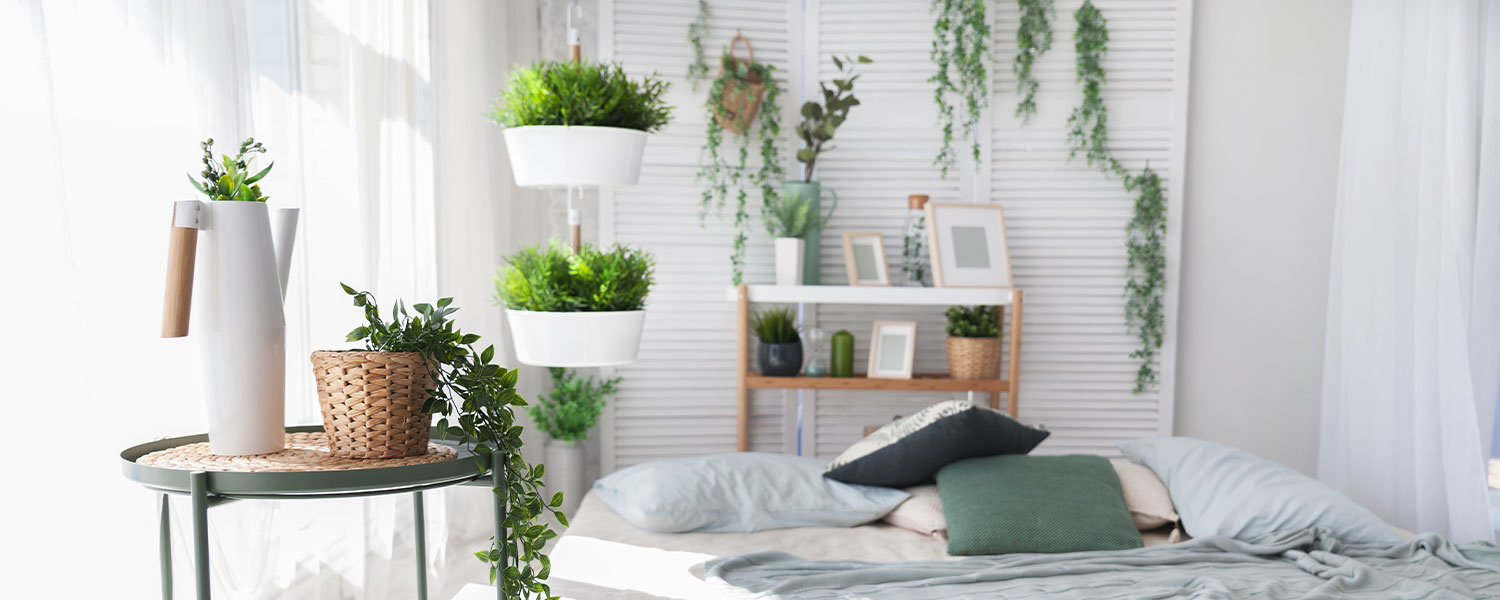
Aside from their obvious visual appeal, hanging plants offer a variety of benefits for your living room. They can purify the air by filtering out toxins and releasing oxygen, creating a healthier and more oxygen-rich environment. They also have a calming effect and can reduce stress and anxiety, making them perfect for creating a peaceful and relaxing living space.
Choosing the Right Plants

When it comes to choosing the right hanging plants for your living room, it's important to consider the amount of natural light that the room receives. Some plants thrive in bright, indirect light, while others prefer low light conditions. Some popular choices for hanging plants include spider plants, pothos, and philodendrons, which are low maintenance and can thrive in a variety of lighting conditions.
Designing with Hanging Plants

There are endless ways to incorporate hanging plants into your living room design. You can hang them from the ceiling using macrame hangers or place them on shelves or tables for a more versatile look. You can also mix and match different sizes and types of plants for a more dynamic and visually appealing display.
Caring for Your Hanging Plants

Proper care is essential for the health and longevity of your hanging plants . Be sure to water them regularly, but not too much, as overwatering can lead to root rot. It's also important to dust the leaves and trim any dead or damaged parts of the plant to promote healthy growth. With the right care, your hanging plants will continue to add freshness and life to your living room for years to come.
Incorporating hanging plants into your living room design is a simple and effective way to add a touch of nature and tranquility to your home. With their numerous benefits and endless design possibilities, it's no wonder why they have become such a popular trend in house design. So why not give it a try and see the positive impact it can have on your living space?







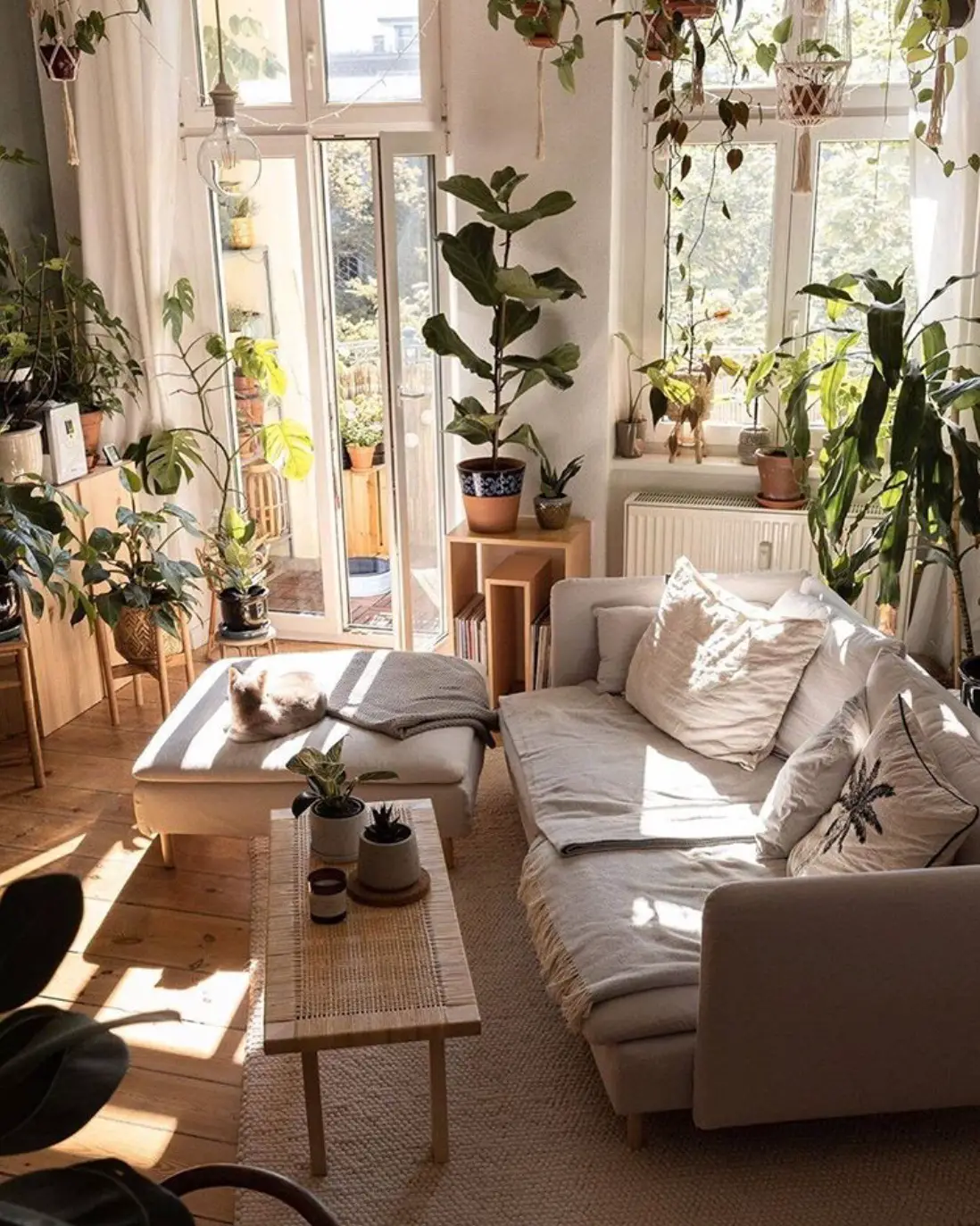


/cdn.vox-cdn.com/uploads/chorus_asset/file/11545381/House_Calls_Herman_Pelosi_Brooklyn_living_room_Gabriella_Herman.jpg)

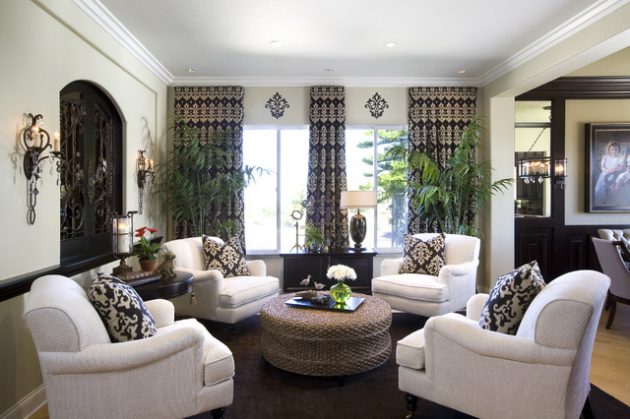





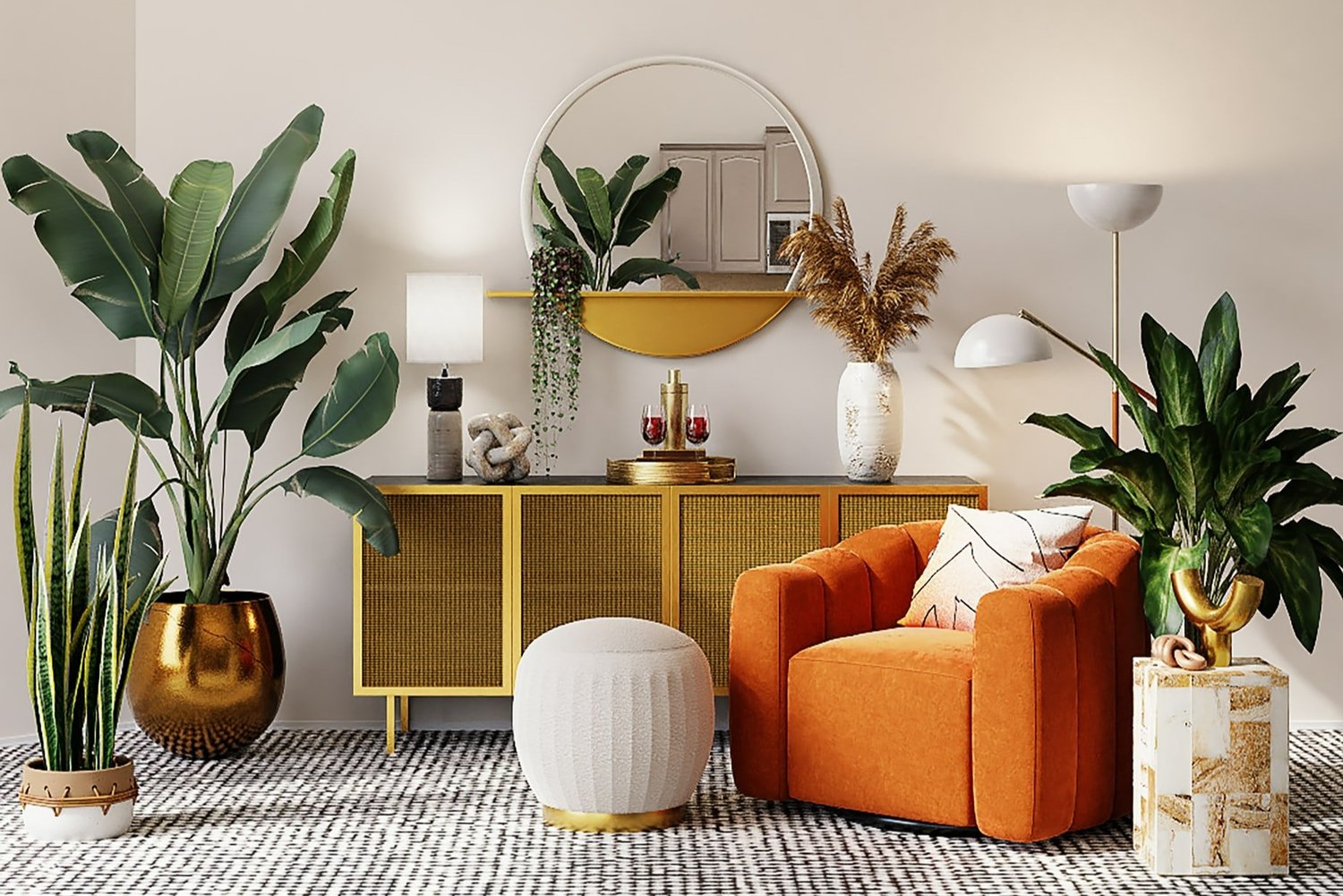
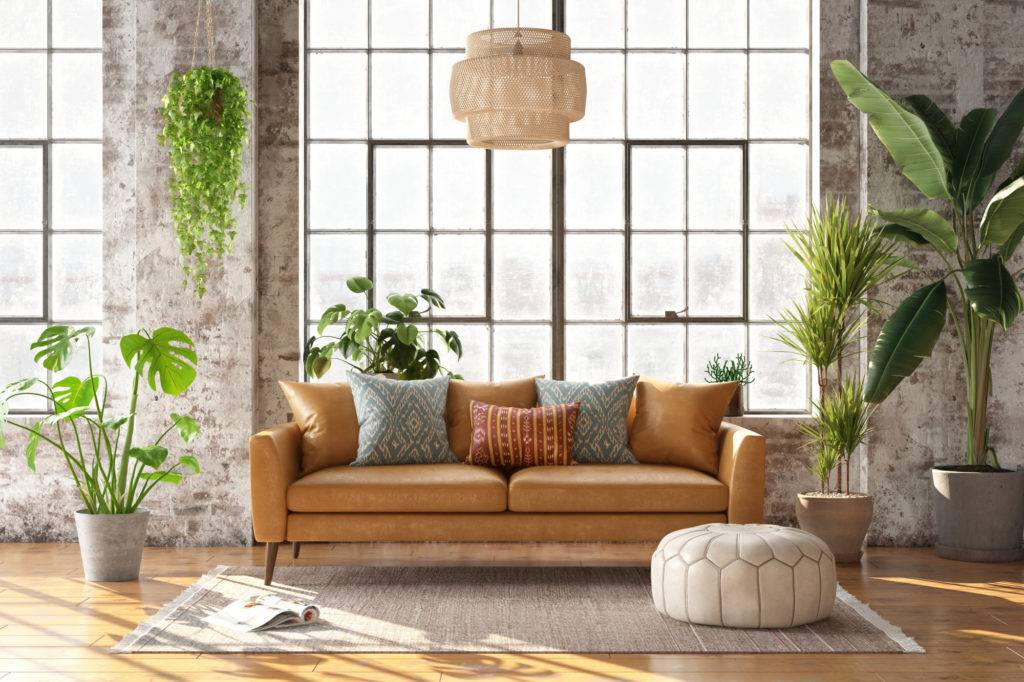






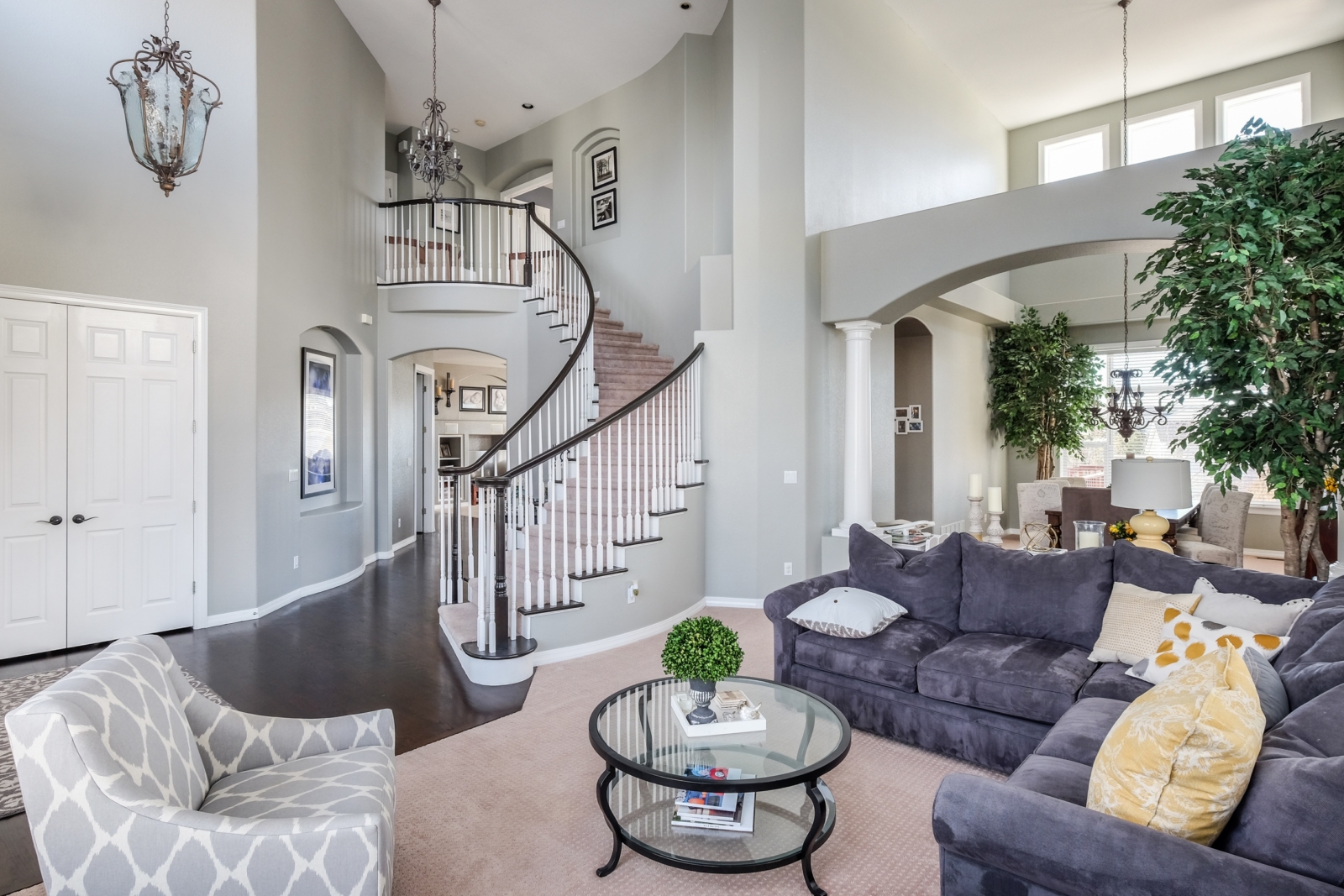








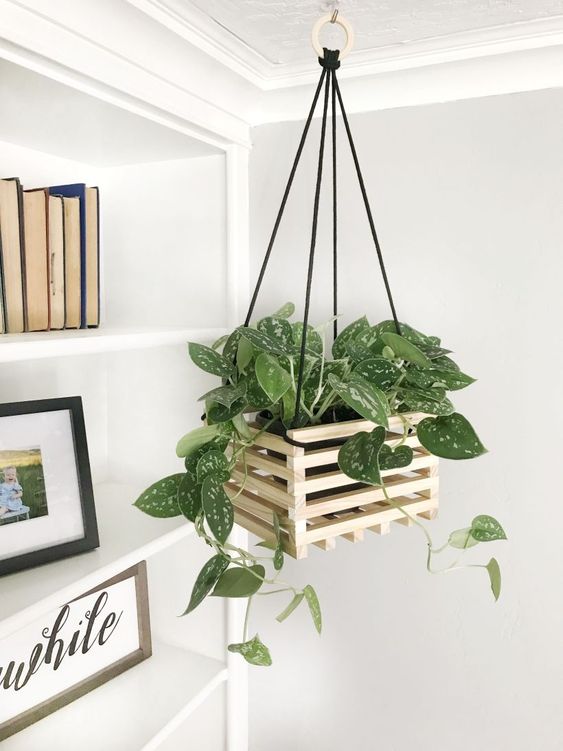

:max_bytes(150000):strip_icc()/how-to-arrange-plants-in-a-living-room-6739917-hero-b77d7a7ce4a54e90b13b9267935a7d12.jpg)
